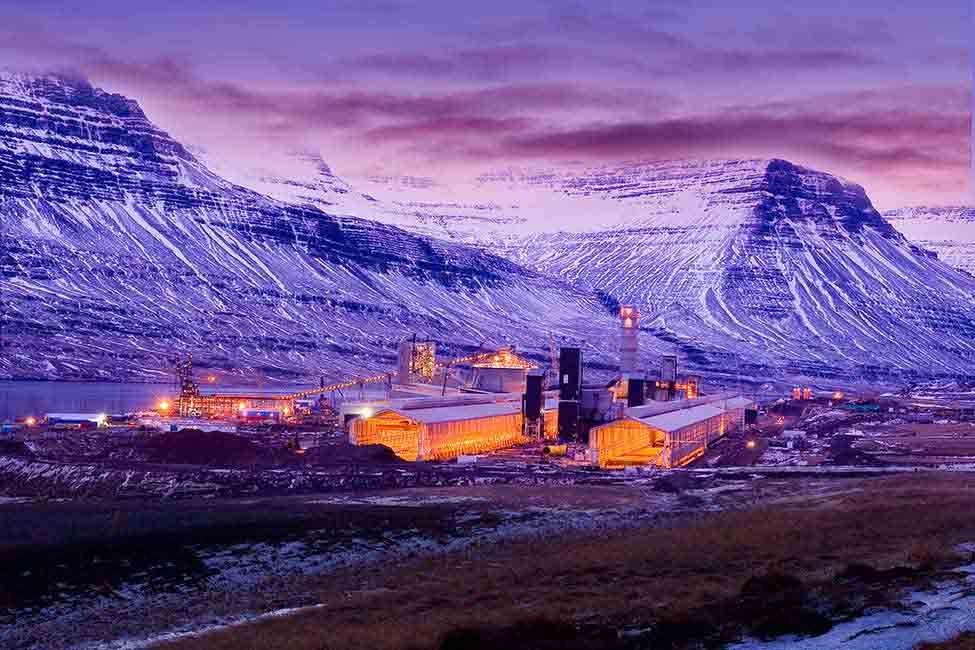Despite power shortage, Iceland continued supplying electricity to three aluminium smelters
Segregated from the power networks of any other country, Iceland in 2021 winter did face a unique problem of running out of electricity.

The Icelanders who used to merely live on fishing for their livelihood were fortunate enough to witness the emergence of a large aluminium-smelting industry fifty years ago on their soil, which usually yields ample wealth for the entire community. 850 kms from the Scottish Coast, surrounded by the Atlantic Ocean, Iceland had always been self-sufficient when it came to electricity generation; in fact, the smelter played a huge role.
Iceland could be fuelled by geothermal power and hydro generation since it is known as the land of glaciers located between two tectonic plates, highlands and also receives ample rainfall. It has even plotted to export electricity, but never made the investment on economic grounds to connect with any other countries' grids.
However, this winter, heightened demands from electricity consuming society and the power-greedy industries combined lowered the reservoir levels. Even after the summer draughts, the country spent four months curtailing power to certain industries, including fish meal factories and district heating plants.
Even though the void is somehow being filled again with the recent rains in Iceland, the country should not forget this situation and try to learn from history.
The need to increase generation capacity "is quite urgent," Hordur Arnarson, chief executive officer of national power company Landsvirkjun HF, said in an interview. “Still, there's no quick respite in sight, as it will take at least four years to bring new generation capacity - up to 300 megawatts – online,” he said.
The world’s greatest energy producer, Iceland, in spite of being such a small island country, sells almost 80% of the electricity generated in the country to Rio Tinto Plc, Century Aluminium Co. and Alcoa Corp. Due to its phenomenal landscape, Iceland can generate a huge amount of natural power.
When power was not in abundance, the smelters were served through their contracts with established mediums, the huge amount of coal they require for operations to take place. While on the other hand, fish-meal factories in the east of the country had been running on oil since there was no electricity to power them. Similarly, homes were being kept warm with the help of crude only.
Environmentalists are really worried after all the discoveries have been made.
"It's crazy that people in the Westfjords need to heat their houses with oil when electricity supply goes down," Audur Onnu Magnusdottir, general manager of environmental association Landvernd, said in an interview. "The big international companies are prioritised. This shows how flawed our priorities are."
She wishes to focus on consumption reduction and where the energy is spent in the coming years.
"We cannot be pressured by polluters of the world to sacrifice our nature," Magnusdottir said, referring to plans to increase land use on power production, even for renewable energy.
‘The power crunch has also meant lost opportunities to diversify the economy’, said Sigurdur Hannesson, managing director of the Federation of Icelandic Industries. Several green projects were nipped because companies couldn't get power contracts, he said in an interview, adding that algae-based foods and battery production are among industries that could be built if electricity could be secured.
“The government is taking a middle road as it weighs new power projects. Key considerations include ensuring the public benefits from private profits in energy generation, and what power will be used for,” said Prime Minister Katrin Jakobsdottir in an interview.
"The domestic energy transition should be prioritised over the extensive export of energy," she said. "Those of us who want to protect nature a lot, like myself, and those who are more pro harvesting, all need to look at the overall interest."
This news is also available on our App 'AlCircle News' Android | iOS























